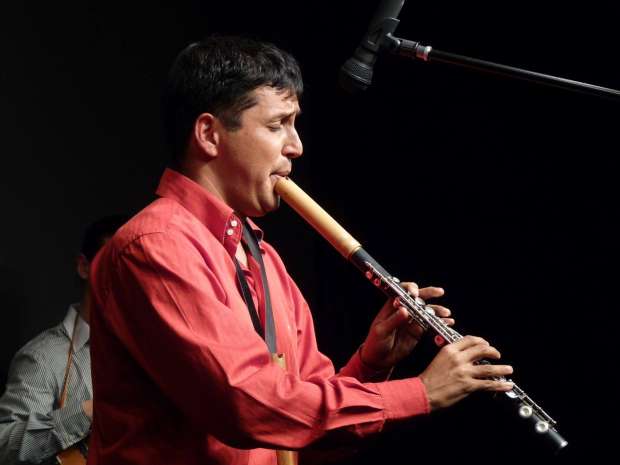Luis Alberto De La Calle Aramburu
- Current Position
- Research Team Member on the Didactic of Arts and Movements (DAM) Faculty of Educational Sciences, University of Geneva, Switzerland
- Bio
- Luis De La Calle Aramburu, a Peruvian Quena and flute player who studied composition, Quena and Inca Zampona pan flute in Peru. He has further studied Japanese flutes in Japan, Boehm flute in Denmark and is now working with his innovation of the De La Calle Quena Flute at the Malmö Academy of Music/Lunds University in Sweden. He has recorded together with Isao Tomita and the Japanese percussion group Kodo in Japan for Sony Music. He has been invited to perform at gala concerts and to give workshops at the National Flute Association Convention in USA, for the New York’s Flute Club 2003, and at the Second International Flute Festival of Lund, Luis De La Calle is one of the most acclaimed and accomplished multicultural artist innovators in the music world who has received international praise and recognition for over three decades. His artistic work presents a multifaceted bridge between eastern and western traditions, which integrates the concept of unity in diversity and which has made unique contributions in the fields of research, music education, composition, performance, innovation of musical instruments and educational/social service. De La Calle has integrated three cultures (from South America, Japan, and India), which are based in the oral tradition (observation, listening, and imitation), with the western European culture (written tradition), and for the last two decades has contributed to vaster and innovative knowledge in: playing techniques for any music instrument, tools for teaching and learning music, research in music education, and composition and construction of new musical instruments. Using this greater knowledge and revolutionary perspective, De La Calle has created lasting impact on international audiences over a long and rich career, bringing him acclaim on stages throughout the world. His music is an artistic expression of the aesthetics and emotions of various people who have been through historical issues from the four mentioned cultures in which De La Calle has been deeply involved, having lived in these countries throughout his life and having studied with most outstanding masters of Arts. Nonetheless, in his artistic expression, De La Calle transcends the historical challenges of these cultures, and depicts an essential evolution of human consciousness from the gross to the subtle, from the material to the spiritual, and from the temporal to the eternal. Through this unified way, De La Calle illustrates that art is a force that drives this evolution and is thus an expression of the individual’s intense desire for happiness, whose fundamental quality is aesthetics. He received a Doctorate (Ph. D.) degree in Educational Sciences (with a specialization in music didactics), at the University of Geneva and has received an Honorary Doctorate at the Parliament of the Republic of Peru fvrom Peru’s National University of Education, “Enrique Guzmán y Valle”

